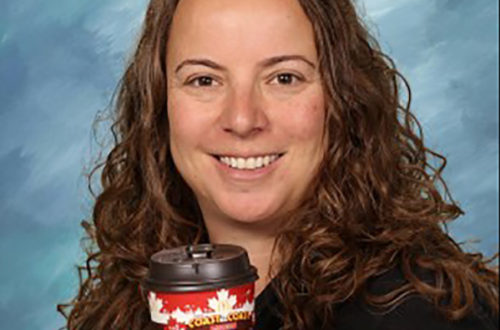Journal of the Mathematics Council of the Alberta Teachers’ Association
Volume 25 Issue 1, October 1985
Direction
Delta-K has two new editors, Art Jorgensen and John Percevault. At least, the initial issue in this volume has been published under their editorship.
As editors of Delta-K, we will endeavor to feature articles and ideas that will be useful to teachers in the classroom, to provide an opportunity for the participation of Alberta students through the “Student Problem Corner,” and most importantly, to provide an outlet for Alberta mathematics educators to exchange ideas. These three objectives are facets of improving mathematics education.
We anticipate publishing three issues of Delta-K during 1985-86. The
next issue should reach you by the end of January, and the third issue by the end of May. However, whether or not this is realistic could depend on the contribution of articles. In addition, you can look forward to receiving the 1985 issue of The Canadian Mathematics Teacher.
Comment
In this issue, Al Anderson challenges teachers to examine whether or not
problem solving is being taught in their classrooms. The implication that
teachers can arrange time, organization of students, and teaching strategies is clear. Walter Szetela enlarges on the theme that problem solving can be a practical exercise, utilizing the newspaper and students’ identification with a popular figure. G.S. Bhalla utilizes working backwards. The “Hindu Inversion Method” is intriguing. Does the strategy of working backwards apply to geometric proofs as well? Joan Haig shares with us an example of how she involves honors mathematics students in exploring content beyond the prescribed curriculum. John Percevault suggests that teachers develop a set of problems that are related to a particular problem-solving strategy. A thought process is applied to “families of problems” and is extended to translation. The central question posed by Hank Boer challenges teachers to examine the difference between evaluating the solution to a problem and evaluating the problem solving process. A schema is developed. Oscar Schaaf and Ian Beattie contribute ideas that you can try in the classroom Monday morning. Student responses to Schaaf’s and Beattie’s contributions will be published.
Share DeLta-K with your colleagues. Reactions will be appreciated.
In Appreciation
The executive of MCATA and the editors wish to acknowledge the contribution of the previous editor, Gordon Nicol.
Coeditors Arthur O. Jorgensen and John B. Percevault
1 – 2
3
Coeditors Arthur O. Jorgensen and John B. Percevault
4 – 6
How Are We Doing – Now That We Know What It’s All About?
A. Anderson
7 – 11
The Newspaper Wedge: Motivate Students to Solve and Create Problems
Walter Szetela
12 – 13
Hindu Inversion in Present-Day Algebra Classrooms
G. S. Bhalla
14 – 18
Broadening Horizons – Individual Student Projects in Mathematics
Joan Haig
19 – 22
Families of Problems: Changing Conditions, Variables, and Information Sought
John B. Percevault
23 – 27
Hank Boer
28 – 29
Investigating Number Relationships
Oscar Schaaf
30 – 31
Ian D. Beattie
32



